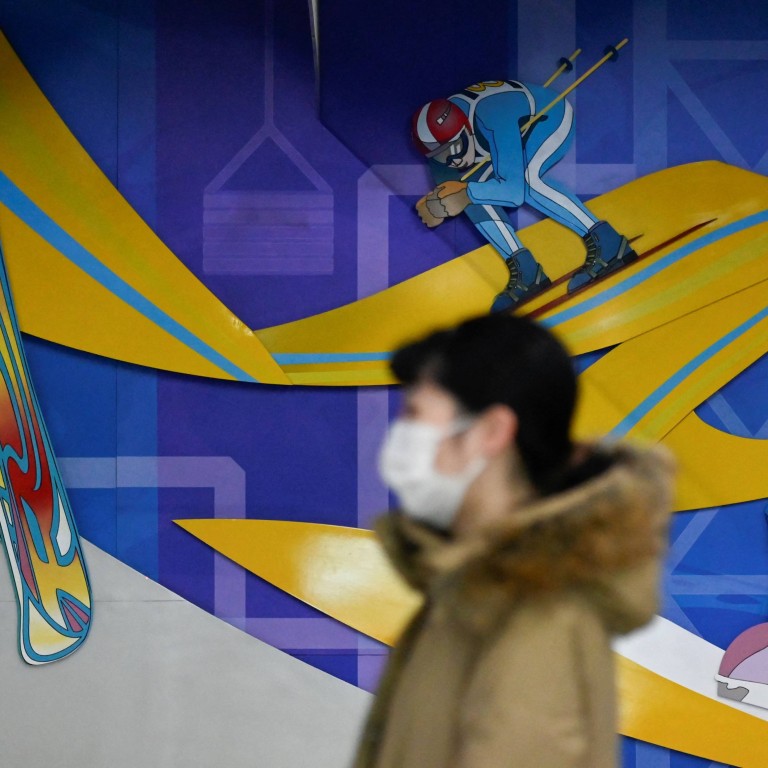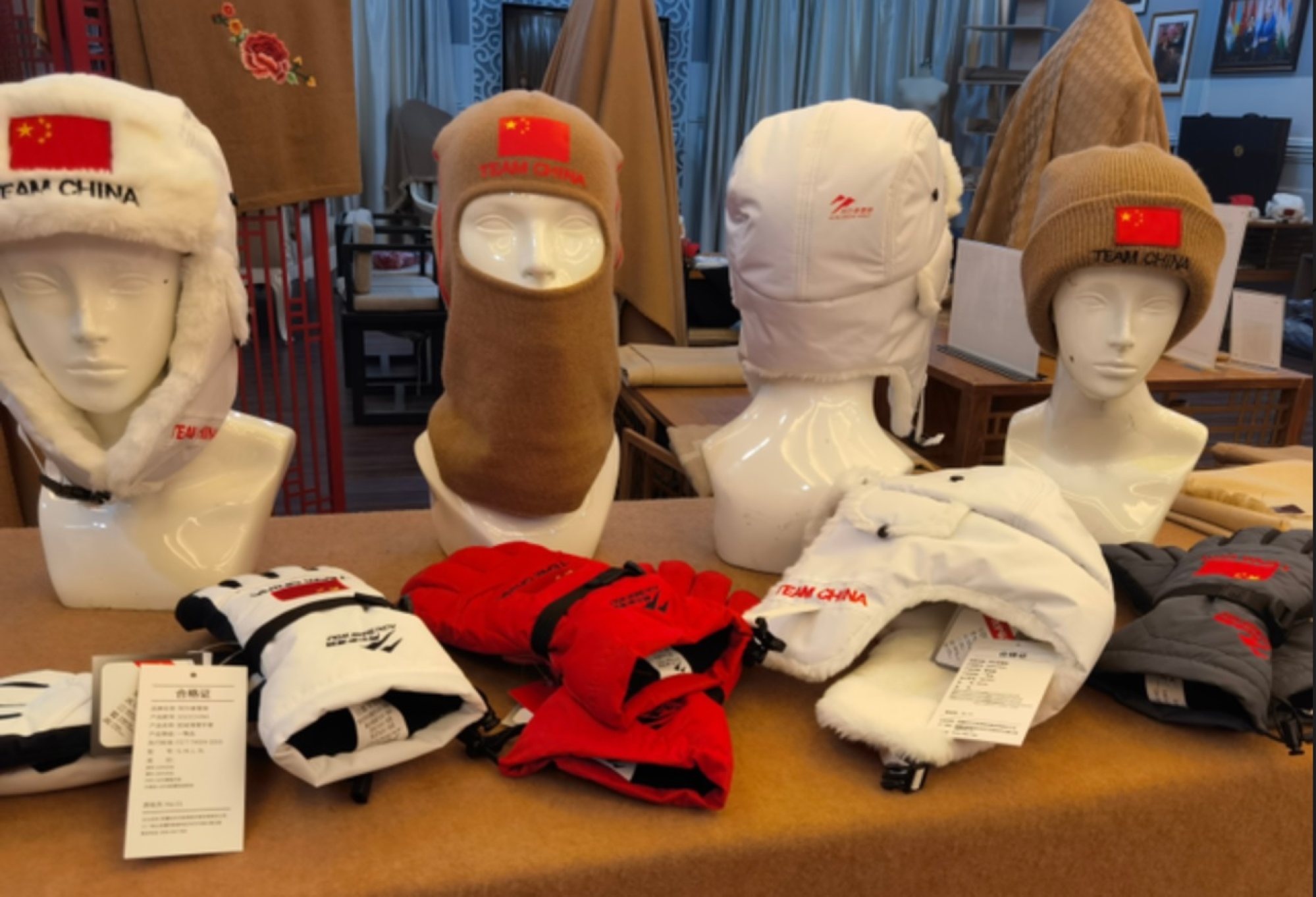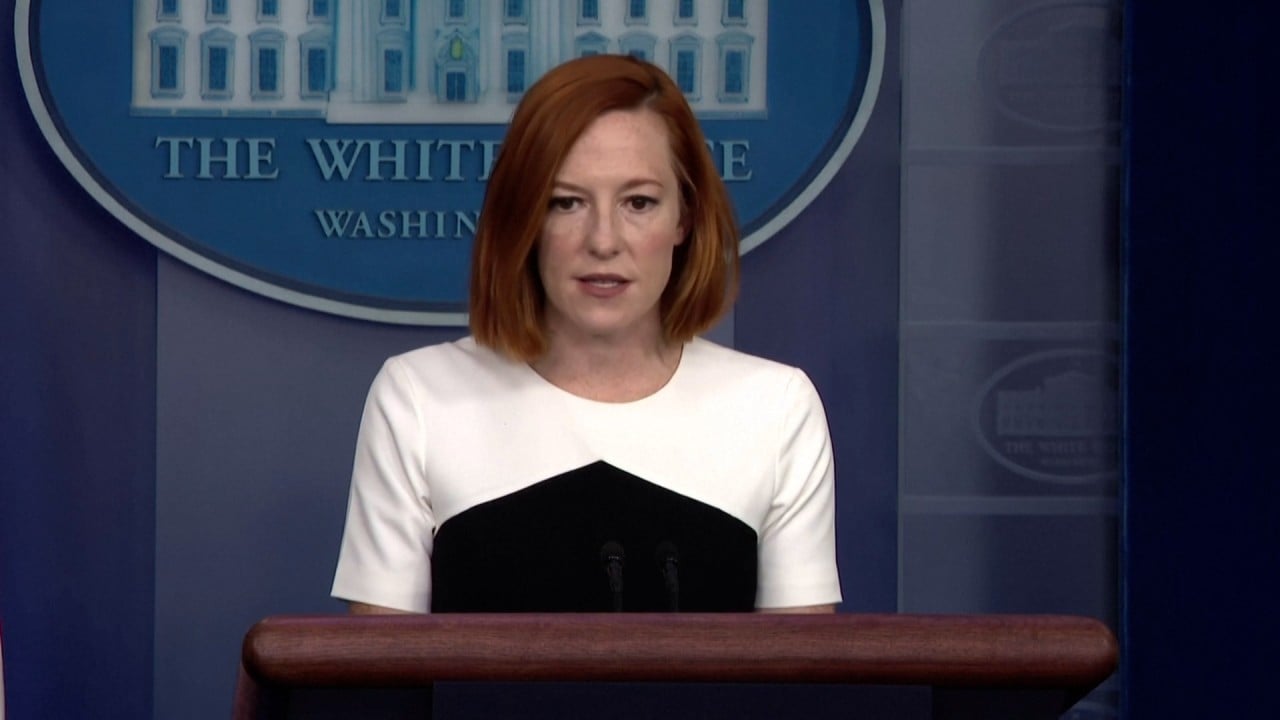
Beijing 2022: 2,000 China uniforms made in Xinjiang delivered to Olympic officials for athletes
- Sets of winter clothing, including ski suits, gloves, hats and ear protectors used cotton and camel hair from western region
- China has been accused of a variety of human rights abuses in Xinjiang, all of which it has continuously denied
Ski suits, gloves, hats, and ear protectors for athletes arrived on Wednesday, according to Beijing Daily, less than a month before the opening ceremony.

Chinese officials welcomed the delivery of the uniforms, with Jiang Shicai, who serves as deputy director of the Winter Sports Management Center of the State General Administration of Sports, hailing it as a recognition of the region’s “product processing technology”.
“The production of winter clothes for Chinese athletes in the Winter Olympics reflects the quality of raw materials, such as camel hair and cotton, in Xinjiang,” said Jiang, who is also deputy director of the Xinjiang Autonomous Region Sports Bureau.
He added that the uniforms were “Xinjiang’s contribution to the Beijing 2022 Winter Olympics”.
Xinjiang has been a flashpoint for the Winter Olympics, with China accused of human rights abuses against Uygurs and other Muslim minorities in the far western region.
Beijing has continuously denied the allegations, saying its policies are designed to combat extremism, rather than carrying out “genocide” or using forced labour.
However, politicians and human rights groups have increasingly called for boycotts of the sporting event, along with greater accountability from companies who may be relying on materials sourced from Xinjiang.
Early last month, the United States announced it would not send an official delegation to the Games as a statement against China’s “continuing genocide and crimes against humanity in Xinjiang”.
The United Kingdom, Canada, and Australia joined the diplomatic boycott, citing Xinjiang and other issues on China’s human rights record.
China’s anti-graft agency warns Walmart, Sam’s Club over Xinjiang goods
“As the Chinese government tries to whitewash their genocide and claim a propaganda victory with the upcoming Olympics, this legislation sends a powerful, bipartisan message that the United States will not turn a blind eye,” Senator Jeff Merkley of Oregon, the bill’s lead Democratic sponsor in the Senate, said after the law was passed.
China has only doubled down on Xinjiang manufacturing, with the region’s new Communist Party secretary Ma Xingrui calling for efforts to modernise the region’s supply chains and improve the international business environment, with hopes to “stimulate innovation” and increase investment.
The maker of the athlete uniforms is a subsidiary of the Xinjiang Yutai Camel Wool Textile Co Ltd, which says it annually invests nearly 5 million yuan in research and development, with 21 patented technologies for its sports clothing.


